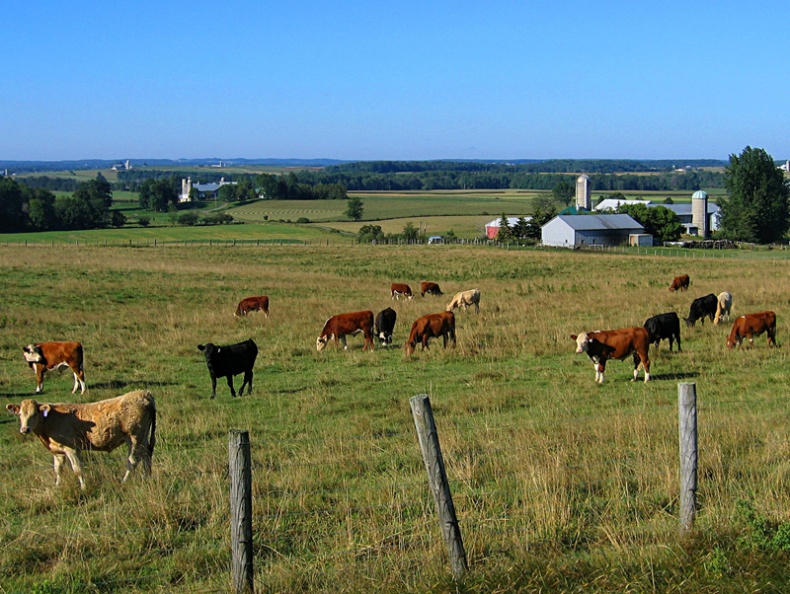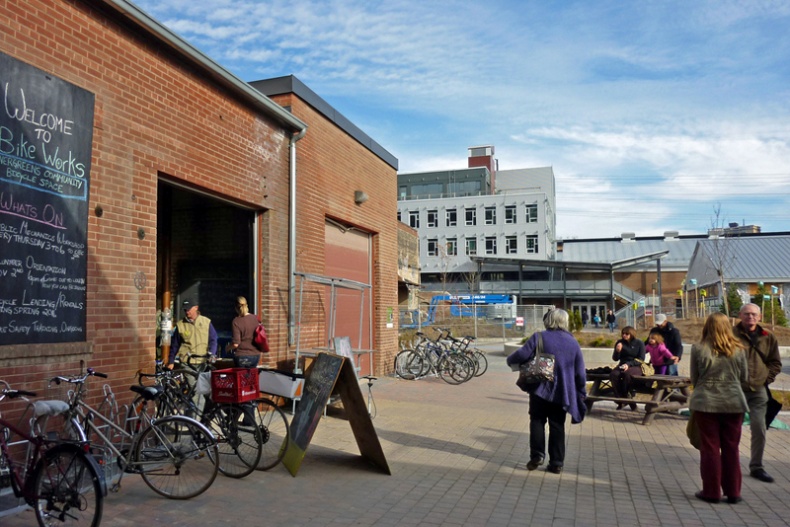
Grazing cows
by Alex Thomson
Animal treatment in mass farms and slaughter houses is often highly questionable not only from the moral point of view of animals' suffering, but also considering the health effects it has on their meat and products, and consequently on our health. In the country, it may be possible to find a local farmer who eschews growth hormones and lets her animals out to graze, but in the city, different strategies must be pursued if you want to eat high-quality, healthy meat.
One of the more obvious places to look for what some people have taken to calling "happy meat" is, naturally enough, the butcher's. There are a small but growing number of shops like Olliffe, Royal Beef, and Whitehouse Meats that offer free-range, hormone-free, or antibiotic-free meats next to the regular fare. There are also places such as The Healthy Butcher, Fresh From the Farm, Cumbrae's, and Rowe Farms who specialize in non-factory-farmed meats (each of which has its own website for those looking for maps and other information).
Buying organic or traditionally raised meat from a store may ease the conscience and perhaps please the palate, but it can also eat away at the bank account. It is frequently cheaper — though less convenient — to satisfy carnivorous cravings at a farmers market. Although each individual market is only open for one day a week, there are enough of them around during the summer for one to be open on any given day (although there are fewer on Mondays for some reason). A butcher may be happy to talk about their products with you, but at a market, you have the chance to actually talk to the farmer face-to-face about how their animals are raised, and while practices vary from farm to farm, everyone who shows up selling meat at a farmers market is deliberately setting themselves apart from the mainstream factory farms — usually due to environmental or animal welfare issues.

Evergreen Brickworks
by Payton Chung
I have yet to encounter a market that deliberately excludes meat vendors, but since there are fewer of them than fruit and vegetable producers, you may want to scout out a few markets to see which of them includes meat on a regular basis. Fortunately, Toronto's two biggest markets (held Saturday mornings at the Evergreen Brickworks and the Wychwood Barns) are not only plentiful in the animal products department, but run all year long and are, without a doubt, the most fun markets I've ever been to.
Since the local food movement is a growing phenomenon, new markets and other meat sources crop up every year, and to my knowledge, there is not yet a directory of such things. For those who don't mind trekking rather far afield for good food, the website Eat Wild provides a listing (as well as maps and contact information) of North American meat and dairy producers who adhere to fairly stringent criteria regarding the housing, feeding, and general care of their animals and who can be visited for 'farm gate' sales.



